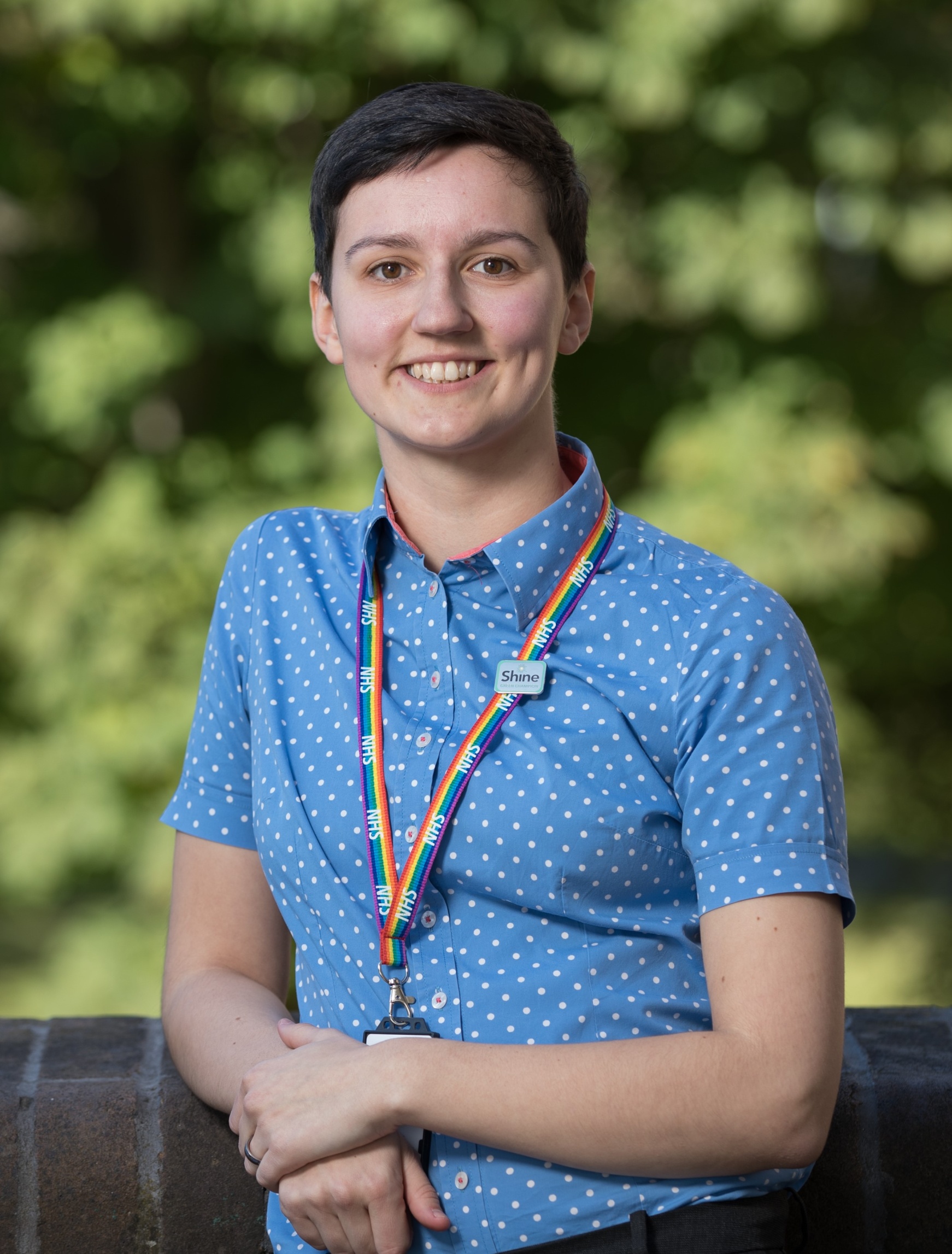Case studies
Amy | Assistant Waste Manager
Estates Department
"We’re a passionate and close-knit team and we really enjoy working together."
As you can imagine, a hospital produces a lot of waste, everywhere from the kitchens to the theatres. This means there are many different types of waste, which all need to be dealt with in different specialised ways. I am there to make sure that waste is removed from site in a safe and efficient way.
It’s a tightly controlled industry and as a specialist hospital we have lot of complex and hazardous wastes to deal with.
Managing waste is ultimately about protecting patients, ensuring a clean and healthy patient environment. Efficient waste management also saves money which goes back into patient care.
I work as part of the sustainability team, and my wider environmental sustainability work also looks to minimise resource use, environmental impact and reduce costs - ultimately freeing up funds to allow the Trust to provide outstanding healthcare services to patients well into the future and to meet the Trust vision and Climate Emergency commitments.
I’ve always had a passion for the environment and started working at the trust in 2016 as an assistant environmental officer. This role included some aspects of waste management, which allowed me to see how interesting it can be in such a complex environment. I took opportunities to support the waste manager and upskill myself in waste management, leading to my current role.
What do you love about your job?
First and foremost my colleagues. Everyone in the sustainability team is so passionate, and this passion exists across the trust – no matter which department you go to, it’s clear that people take pride in the work they do.
I’m lucky to have the opportunity to visit departments across the trust in the course of my work, to help support staff and improve the patient environment. Being able to see all the different specialties and services has given me a massive appreciation for the amazing care we provide for patients, their families and our community.
I also love how varied my role is. Almost every day is different and you never quite know what call is going to come in or what you might need to deal with. From recycling projects to delivering training to auditing, sometimes all in the same day!
What has been your proudest moment so far?
There have been several moments which have made me feel extremely proud, from small wins helping a department reduce the single use plastics they use, to huge transformational changes. Perhaps my proudest moment came through being part of the sustainability team which was instrumental in Newcastle Hospitals becoming the first healthcare organisation in the world to declare a climate emergency.
The trust has taken a leadership position, championing action on the climate emergency, which is also a health emergency, nationally and internationally.
After our healthcare waste contractor failed to service our sites (going into liquidation) I helped ensure that waste could continue to leave site so that there was no impact on patients. Although it was a very challenging situation the impact clinically was negligible; at the end of the day we’re here to support patient care and this was a situation where I could really see the impact of what I do.
Any tips for finding a job that you love?
Above all I would suggest doing something that aligns with your values. When you feel your work is having a positive impact it’s a lot easier to get through the hard days.
Tell us about any unusual aspects of the job
In waste management we get a lot of weird and wonderful calls from staff, querying how to safely dispose of all sorts of items – sometimes these can be very unusual indeed.
What are your usual working hours?
Typically I work office hours (Mon-Fri 8.30-16.30). There are occasions when I need to travel to visit waste sites, or work outside of hours to deliver training at an appropriate time for clinical staff. As a support service we have to be flexible as the hospital works 24 hours a day.
What training is needed for your job?
Personally, I studied environmental science with a Master’s in clean technology at Newcastle University, and had experience working in a large public sector organisation before applying to Newcastle Hospitals.
The role requires a degree and some postgraduate qualifications but there is no standard route into the role. One of the most important things to have, however, is passion for the environment, sustainability and healthcare.
Why should someone come and work in your department?
It is an exciting time to get into sustainability and waste management, particularly in the NHS. There’s a big focus on sustainability today, which means we have lots of opportunities to do interesting work. You could be part of effecting real change which benefits patients, staff and the community at large. We’re a passionate and close-knit team and we really enjoy working together.
Find your perfect job

